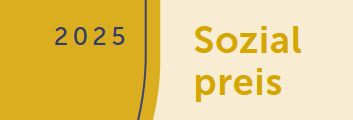Mentors for Ukrainian orphans
Become a mentor for a child in the evacuated orphanage!
No language skills required.
Which children are we supporting?
In April 2022, more than 80 children and young people with disabilities were evacuated from their orphanage in Kryvyi Rih (Ukraine) to Germany because of the war. They now live at the Dominikus-Ringeisen-Werk in Ursberg (Germany), where they are also coping with the trauma of war and forced displacement on top of their already difficult circumstances. We are currently looking for mentors for around 30 of them. (Evacuation story)
How does mentoring work?
As a mentor, you visit “your” child in Ursberg about once a week and support them based on their individual needs. You build a respectful and caring relationship and spend fun, meaningful time together. Playing, reading books, coloring, going for walks – the activities depend on the child’s interests and needs.
What is the goal of the mentoring project?
Our goal is to help these Ukrainian refugee children socialize and integrate more easily into life in Germany. A personal relationship with their mentor is also meant to support them in processing trauma and strengthening their emotional well-being.
Furthermore, our mentoring project was honoured with the Swabian government’s Integration Award 2023 und Social Award 2025.
What does it mean to be a mentor for refugee Ukrainian children?
These children need stability and personal connection. As a mentor, you take on a very responsible and long-term role. You build a friendship with the child, give them individual attention, and support them according to their needs. You share your experiences and life skills with your mentee. Through this bond, not only does the child learn and grow, but so do you as a mentor.
Important: To become a mentor for refugee orphans, you should be able to commit reliable time to your mentee over the coming year. Ending the relationship prematurely would be very painful for the already traumatized child — and that must be avoided.
Is it possible to adopt Ukrainian orphans in Germany?
No, adoption of Ukrainian refugee children from evacuated orphanages is not possible in Germany. They are here only temporarily due to the war. However, through mentoring, these children can receive individual care and emotional support that gives them strength and hope.
Who can become a mentor?
You can apply if you:
- are 22 years or older
- live near Ursberg (e.g. in Augsburg, Gunzburg, Ulm, Munich or the surrounding area)
- would like to accompany a refugee child or young person with a difficult past over the long term (for at least one year)
- have time to visit your mentee in Ursberg once a week (e.g. on weekends)
In addition:
- Experience working with children with disabilities is an advantage, but not required.
- Knowledge of Russian or Ukrainian is helpful, but not necessary — because play and laughter are universal languages. Many of the children also understand some German by now.
- Exclusion criterion: Persons who have been legally convicted of a criminal offense under §72a (1) sentence 1 of the German Child and Youth Welfare Act (SGB VIII) cannot become mentors. Therefore, an extended certificate of good conduct is required.

Is this a paid position?
No, mentoring refugee Ukrainian orphans is a voluntary position. However, if needed, we can reimburse your travel expenses to visit your mentee as well as any material costs.
Do mentors receive training?
Yes. We offer free training to prepare you for your new role. The children and young people involved have experienced extremely difficult circumstances — lack of family support, growing up in an orphanage, health issues, and now the trauma of war and forced displacement from Ukraine to a foreign country. That’s why it’s important for you to engage with some theoretical background in advance. We also provide practical guidance on how to support traumatised children.

Is it possible to withdraw after training?
Yes, attending the training does not commit you to becoming a mentor. If you decide afterwards that this role isn’t the right fit for you, that’s absolutely fine. It’s much better to decline at that point than after meeting the child for the first time.
We look forward to your application:
Contact
Julia Beisenov,
mentoren@take-my-hand.org
You are currently seeing a placeholder content of YouTube. To access the actual content, click on the button below. Please note that data will be passed on to third-party providers.
More information


